On the 9th of October PONARS Eurasia held an online event “Authoritarian Governance and Reform in Russia”. Vladimir Gel’man, professor at the European University at Saint Petersburg and the University of Helsinki gave a talk at the event based on his and Margarita Zavadskaya’s policy memo “Explaining Bad Governance in Russia: Institutions and Incentives”. The memo is available online and you can find the recording of the event below:
Election observation of the 2020 presidential elections in Belarus, part 2
This is the second part of the paper “Election observation of the 2020 presidential elections in Belarus: main actors, electoral manipulations, and lessons for the future” by Dr. Alla Leukavets, a policy analyst at the Center for Strategic and Foreign Policy Studies in Minsk. The first part can be read in our blog.
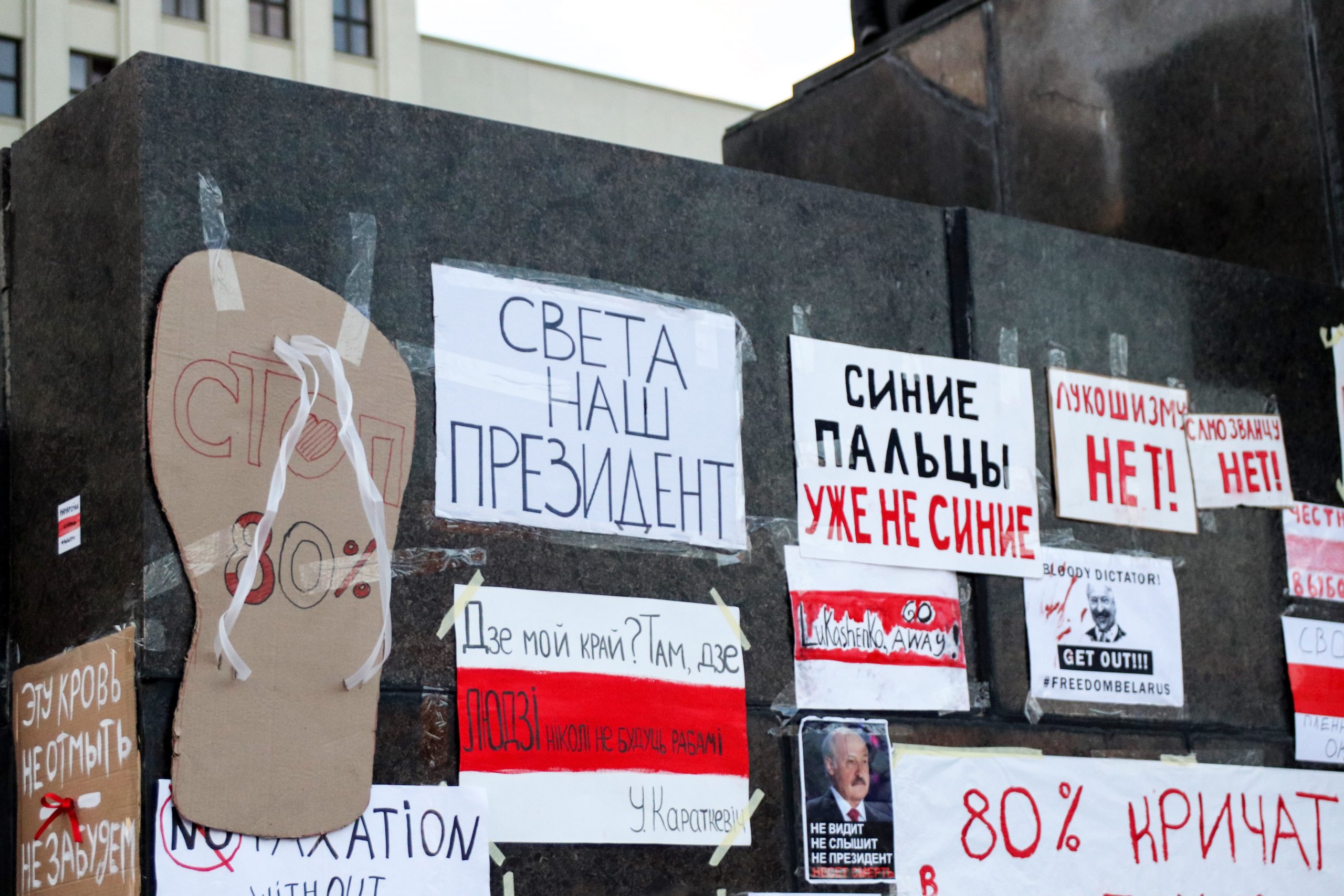
Continue reading “Election observation of the 2020 presidential elections in Belarus, part 2”
Election observation of the 2020 presidential elections in Belarus: main actors, electoral manipulations, and lessons for the future.
We return with our regular posts about elections, electoral malpractice, and cyber-security, and this Summer and Autumn have been full of notable events we aim to uncover. Elections and protests in Belarus and Kyrgyzstan, single voting day in Russia – we will discuss all these and other cases in the following weeks.
Today we invited Dr. Alla Leukavets, who is a policy analyst at the Center for Strategic and Foreign Policy Studies in Minsk, to write about the conduct of the presidential elections in Belarus on the 9th of August 2020. Alla Leukavets holds a PhD in political science from Bremen International Graduate School of Social Sciences and has recently finished a post-doc programme in electoral studies at the University of Tartu. Alla specializes in the domestic and foreign policy of Belarus and other Eastern Partnership countries, Eurasian integration, and energy relations between Russia and the European Union. Leukavets’ enlightening and rich contribution will be split into two parts, and today we publish the first one that deals with election observation in Belarus.
Election observation is the process of assessing the conduct of elections in accordance with national legislation and international election standards by one or more independent actors. It plays an important role in ensuring electoral integrity. This blog post will discuss the types of election observation, main actors, and kinds of electoral malpractices based on a case study of the 2020 presidential elections in Belarus.

ElMaRB expert panel discussion on Belarusian elections and protests
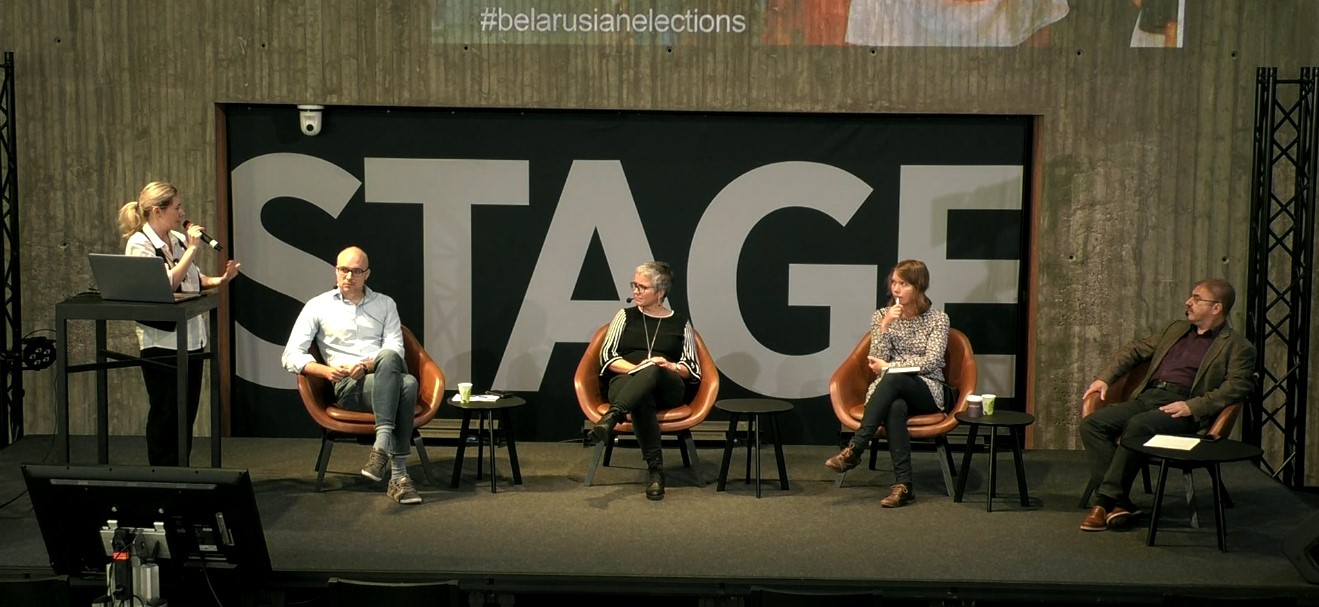
ElMaRB project and the Aleksanteri Institute organised on 1st of September the first event of the new study year – panel discussion “Belarusian election 2020: unexpected outcomes. What is happening and what is to come?”. For this timely event, we invited experts from political science and international relations fields: Ryhor Nizhnikau (Finnish Institute of Foreign Affairs), Vladimir Gel’man (Aleksanteri Institute, University of Helsinki), Kristiina Silvan (Finnish Institute of Foreign Affairs and University of Helsinki) and Katri Pynnöniemi (Aleksanteri Institute, University of Helsinki & National Defence University). The discussion was moderated by ElMaRB project leader Margarita Zavadskaya.
The event started with a brief introduction to the conflict from each expert. Ryhor Nizhnikau’s talk “Knight with rakes: the EU’s way and response to the crisis” dealt with European Union policy towards Belarus in recent years and its dissatisfying reaction to the ongoing events. The next speaker, Katri Pynnöniemi, in her talk “Russian strategic narratives and the crisis in Belarus” explained how the Kremlin applies the same “colour revolution” narrative they used with Ukraine during the Euromaidan and how the Kremlin sees the situation in Belarus in general. Kristiina Silvan, whose Doctoral dissertation is dealing with state youth activism in Belarus and Russia, spoke about the changing attitudes of the youth in her presentation ““From apathy to activism? Young people’s mobilization in 2020””. From the scarce poll data available and based on her research, Silvan revealed that the modern generation in Belarus becomes more politically active. What is interesting, however, is that during the current crisis the Belarusian Republican Youth Union had been rather inactive and did not refer to the protests in their social media channels. The last talk was Vladimir Gel’man’s ”Democratization by Mistake? The Limits of Authoritarian Strategies in Belarus”. Professor Gel’man focused on the problems Lukashenka’s regime faces in the aftermath of the fraudulent elections, how it deals with them, and what can be expected in the future.
The presentations were followed by a discussion with questions from the moderator Margarita Zavadskaya and the online audience. The covered themes included but were not limited to a comparison of the current protests with the recent Venezeualan, Armenian, and Ukranian contention and Russia’s response to them; the repertoire of protest action and its strengths and weakness; the shocking level of violence to which the law enforcement resorted and the loyalty of siloviki to Lukashenko; the role of COVID-19 in the weakening of Lukashenko’s support, and many other related issues. While the experts were rather careful and pessimistic in their assessments of the ongoing post-election protests, they all agree that the regime was significantly weakened by them, and if it withstands, it wouldn’t happen without Russia’s assurance of possible help.
The Belarusians continue to go on marches and strikes every day, and while it is not clear that the democratisation of Belarus will be the result of this contention, what is know for certain is that the citizens are ready for free and fair elections, and without them, there is no democracy.
The recording of the panel discussion is available on Tiedekulma’s website and will be soon published on the Aleksanteri Institute Youtube channel. In the meantime, our project continues to closely follow the post-election contention in Belarus and will be getting back to it in our future publications and events.
Belarusian election 2020: unexpected outcomes
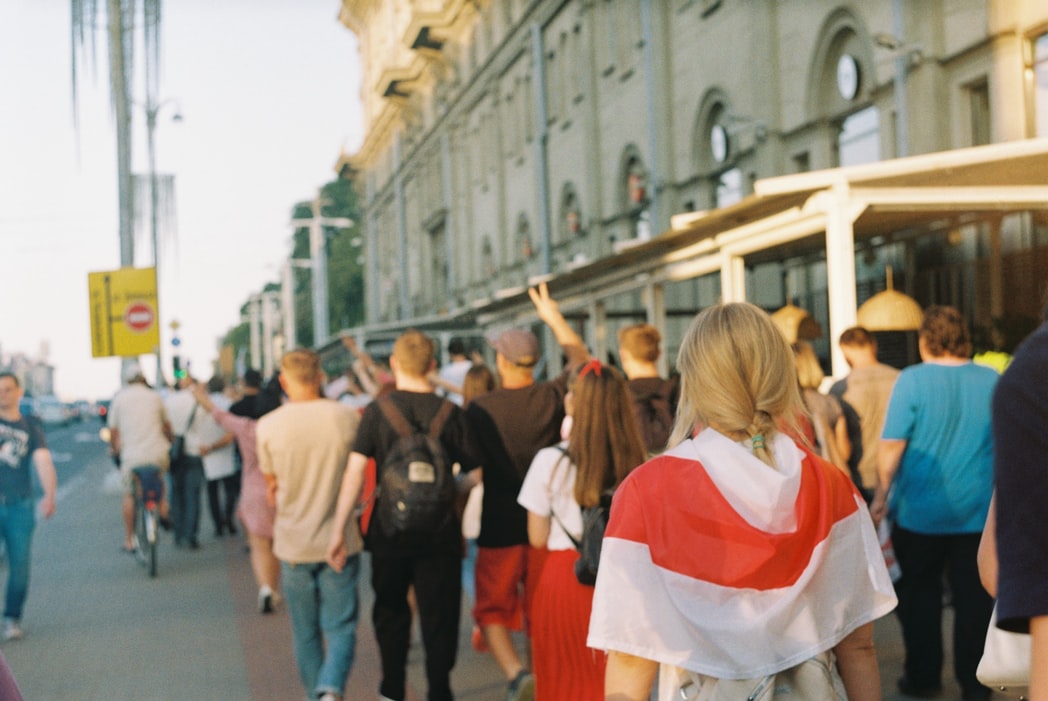
Political developments in Belarus have shaken the world this summer: elections marred with an overwhelming fraud and violations lead to unprecedented large-scale political mobilization. Subsequent state-sponsored violence triggered the protests further and resulted in strikes, marches, meetings, and performances. The situation is developing rapidly and the conflict resolution remains uncertain. At “Belarusian election 2020: unexpected outcomes. What is happening and what is to come?” panel discussion, organised by the ElMaRB project, the experts in the realms of Belarusian politics, social movements, governance, and international relations will discuss the current situation and its impact on the future political landscape.
Tune in at Tiedekulma Live on Tuesday, September 1st at 1 pm to follow a panel discussion with Ryhor Nizhnikau (Finnish Institute of Foreign Affairs), Vladimir Gel’man (Aleksanteri Institute, University of Helsinki), Kristiina Silvan (Finnish Institute of Foreign Affairs and University of Helsinki) and Katri Pynnöniemi (Aleksanteri Institute, University of Helsinki & National Defence University). The discussion is moderated by Margarita Zavadskaya (Aleksanteri Institute, University of Helsinki).
You are welcome to participate in the event by sending in comments and questions either prior to the event by emailing them to niina.into@helsinki.fi, or real-time via Twitter, using hashtag #belarusianelections.
Recording of the event will be available later on the Aleksanteri Institute YouTube channel.
About the speakers:
Dr. Ryhor Nizhnikau is a Senior Research Fellow at the Finnish Institute of Foreign Affairs. His area of expertise includes the EU’s Eastern neighbourhood, Russian policy in the post-soviet space, domestic and foreign policies of Belarus, Moldova, Ukraine
Dr. Vladimir Gel’man is a Professor of Russian Politics at the University of Helsinki. His areas of expertise include Russian and post-Soviet politics and governance in a theoretical and comparative perspective with a special emphasis on political regime dynamics, political institutions, policy-making, electoral and party politics, regional and local government.
Kristiina Silvan is a Research Fellow at the Finnish Institute of Foreign Affairs in the field of Russian and Belarusian domestic policy and social movements, and politics and society in Central Asian states. As a doctoral candidate at the University of Helsinki, she studies youth activism and government-organised youth organisations in post-communist Russia and Belarus.
Dr. Katri Pynnöniemi is an Assistant Professor of Russian Security Policy at the University of Helsinki and National Defence University. Her current research focuses on Russian foreign and security politics, with emphasis on changes in strategic thinking (doctrines, strategies and concepts), conceptualization and implementation of information warfare tools as part of Russian foreign policy, and the analysis of treat perceptions and enemy images in Russian strategic communication/deception.
Dr. Margarita Zavadskaya is a Postdoctoral Researcher and leader of the Electoral Malpractice, Cyber-security, and Political Consequences in Russia and Beyond (ElMaRB) project at the University of Helsinki. Her research focuses on how perceived electoral malpractice affects electoral turnout and other politically relevant outcomes, and how Russian voters consume and process political information translated by the media.
Belarus “elects”, Belarus protests
The protests in Belarus continue and we also continue to follow the situation. In today’s Helsingin Sanomat article “Lukašenkan hämmentävän samanlaiset vaalivoitot muistuttavat, että demokratialla menee huonosti nykymaailmassa – ”Vaalit väärennetään vaalien välissä”, sanoo tutkija” (Lukashenko’s confusingly similar election victories are a reminder that democracy is doing poorly in today’s world – “Elections are rigged between elections,” says the researcher). Margarita Zavadskaya provided her comments for the article.
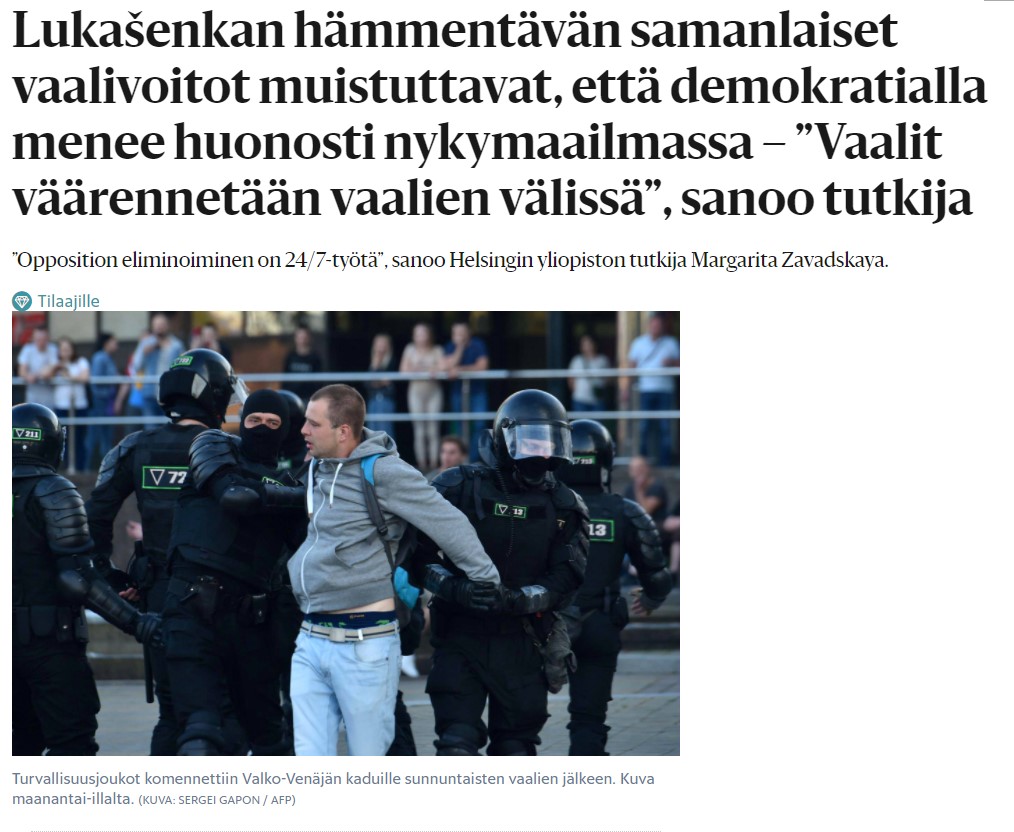
Speaking about constant landslide victories of Lukashenko at presidential elections, Zavadskaya said:
“Very few people have illusions that these numbers are true,” says Helsinki, Margarita Zavadskaya, a postdoctoral researcher at the Alexander Institute of the University, who is familiar with elections in post-Soviet societies.
According to ZAVADSKAYA, at the beginning of his reign, Lukashenko was a “quick learner” and one of the first leaders in the former Soviet region to hone the falsification of election results. According to the researcher, the main key to staying in power has been to destroy the opposition with the help of the security machinery.
“We often focus on election time, but elections are falsified between elections. Eliminating the opposition is a 24/7 job, ”Zavadskaya says.
The full version of this eliminating article is available online for HS subscribers.
The end is near?
Belarus is protesting against the results of the fraudulent election, where, according to the central election commission, Lukashenko won with 80% of votes for two days now. The brutality of security forces is overwhelming, but Belarusians don’t give up. Meduza tried to understand what is going on in the country now and how will it end and asked the experts to comment on the situation. Margarita Zavadskaya was one of the experts and here is her opinion published in the article “Заключил ли Лукашенко сделку с Путиным? Долго ли он еще удержится у власти? Почему на этот раз не получилось быстро подавить протест? Главные вопросы (и ответы!) о белорусском протесте” (Has Lukashenka made a deal with Putin? How long will he stay in power? Why this time they did not manage to suppress the protest fast? Main questions (and answers!) about the Belarusian protest).
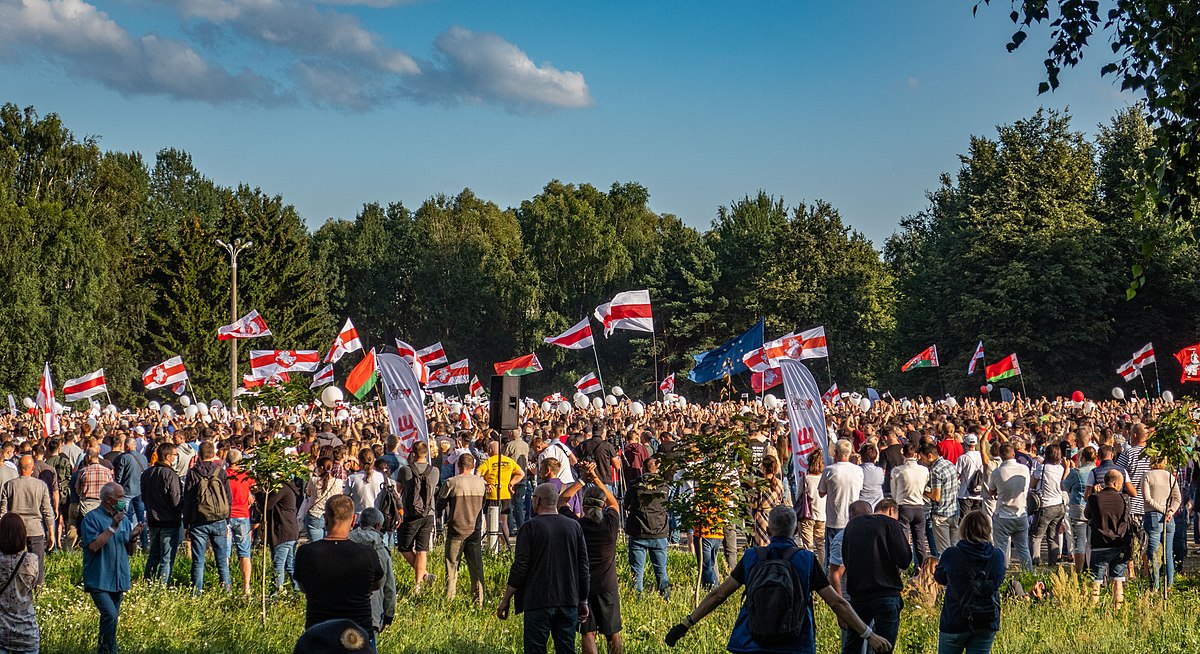
“Most important is that the protest spread beyond Minsk. There is even crowdsourcing this year, the protest exists on its own, without leaders. Even Alexander Grigoryevich admitted, that he doesn’t understand who is fighting against him. If in 2010 it was an exclusively capital protest with a more narrow orientation towards the Belarusian nationalism, now a wider coalition is at place and everything depends on how successfully the opposition staff will coordinate the actions and how many people will be on the streets. The success is already present in small towns where AMAP stepped down before the protesters. It is a serious signal that maybe nothing is yet determined, even though the expert prognosis is that the regime will withstand for some time.
The concept of opposition is wide and unclear now. The potential infrastructure of the opposition is very powerful – there are Telegram channels and people’s demand for the emergence of new opposition leaders. In 2010, in order to gain the population’s trust, one had to try hard, write programmes, and in 2020 there is no need for such. A person needs to be firm, confident, and to say openly that he/she wants the change of power. This is exactly how [Sviatlana] Tsikhanouskaya asserted herself: she has no programme, no political experience, but she became the symbol; probably yesterday majority of the Belarusians voted for her. We can’t state this confidently, but taking into account that at some polling station there was a fair vote count and she won there, she has probably won everywhere. This is a unique situation, Netflix should make a series about it.”
How long will Lukashenko remain in power?
“Many experts agree that, most likely, this is the last Lukashenko’s term, though the survival statistics of authoritarian regimes is on his side for now. Regimes like this usually live long. Political scientists define three types of authoritarian regimes: military juntas, single-party regimes, and personalist dictatorships. The latter ones comprise a dominating majority in contemporary history, and they are the ones that live longest because the coordination of the elite circles is fixed around one person whom they all trust. It is not so important what personal qualities does this person have – they all change with age or lose their relevance, but it is important for the elites to have a guarantee of predictable future; especially in the authoritarian regimes, where the formal rules are not so important.
Regimes like this usually are limited by the life span of the dictator. But for the dictator and his circle, it is all very unsafe, because the power becomes their virtually only choice. That’s why even if the dictator became very tired of it, he will still cling to it till the very last moment because otherwise there is no guarantee for his personal safety. If a coup occurs, the danger comes from the elite. Even on the Belarusian example, we can see an early sign of it, because [Valery] Tsepkalo and [Viktor] Babariko – they are actually typical systemic liberals, not at all revolutionists, but rather people, who perfectly understand how the regime works. What is going on now in Belarus is too early to call an elite split, but regimes like this start to collapse when parts of the elite on which dictators rely start to split off.
Any authoritarian regime, for its own stability, has to rely on a broad public coalition, but Lukashenko himself started to narrow it down. It is not wise to call the nation “little people” (народец), especially when the wellbeing of large groups of the population is less and less guaranteed. By all accounts, right now Lukashenko relies solely on the security forces and the bureaucracy. It is not the broadest coalition, even though Belarus has a large public sector. But the wellbeing level and career perspectives even of these people are questionable at the moment.
This is called “a lame duck syndrome” when a dictator sends a signal that he is politically incapable. Now he appears with a catheter, and it’s a direct sign that he has health problems. For personalist regimes, it’s of paramount importance: a healthy political leader, who is capable of sustaining all vital functions and making adequate decisions – it is a relief for the elite, who needs to know for sure on whom to rely on and with whom to negotiate.”
Read the full version of the article online on Meduza.
The FSO on the QT: The state of sociological work and opinion polling in Russia today
Meduza has published this month a report by Andrey Pertsev and Maksim Solopov about the FSO’s secret polling. On this week’s “The Naked Pravda” podcast, the host Kevin Rothrock spoke to Margarita Zavadskaya and sociologist Denis Volkov about these secret surveys and the field in Russia generally.
In reporting and analysis about Russian politics, the question is ubiquitous: How does Vladimir Putin see things? While there’s no shortage of efforts to read the Russian president’s mind, a more grounded approach would be to examine the intelligence that shapes Putin’s policymaking. One of the Kremlin’s best-trusted sources of information about popular moods is the sociological work conducted by the country’s Secret Service, the Federal Protective Service (FSO).
Most Russians are unaware that the FSO, in addition to guarding top state officials, is responsible for conducting sociological surveys and monitoring popular opinion and the country’s political situation. The agency’s findings are never published, but these data inform some of President Putin’s biggest decisions. For example, fairly recently, FSO polls showing rising national discontent reportedly influenced the Putin administration’s decision to expedite the reopening of Moscow and the rollback of its coronavirus quarantine measures.
To learn more about the FSO, how Russian authorities use its polling and the problems related to it, tune in to the latest episode of “The Naked Pravda” podcast.
COVID-19 and Russians’ political sentiments
Yesterday Riddle published an article “COVID-19 and Russians’ political sentiments” written by Margarita Zavadskaya and Boris Sokolov (Senior Research Fellow, Laboratory for Comparative Social Research, HSE). Based on the ‘Values in Crisis’ survey, they have compiled original data on how the coronavirus pandemic is changing Russian society and its political moods. The results show little sign of any ‘rally round the flag’ effect.
To sum up, Russians have not ‘rallied round the flag’ in response to the epidemic, as predicted by political science theories. On the other hand, the economic situation has not yet had a very noticeable impact on political sentiments. Here, the situation can change if the recession caused by the coronavirus and authorities’ response is protracted. The subjective perception of what is happening has a stronger impact (albeit small in absolute numbers) on the attitude towards the government than direct experience of the disease or its economic consequences. Interestingly, pandemic-related concerns are conducive to a favourable rather than negative attitude to the authorities; perhaps the government is perceived as a source of some stability and social guarantees.
The most interesting result is the close link between the perception of COVID-19 as a hoax and distrust in the government and state institutions. This may indicate that the authorities are suffering the greatest reputational loss among the conservative section of society, where the share of supporters of various conspiracy theories is quite high.
The full version of the text is available in English and Russian online.
Election silence
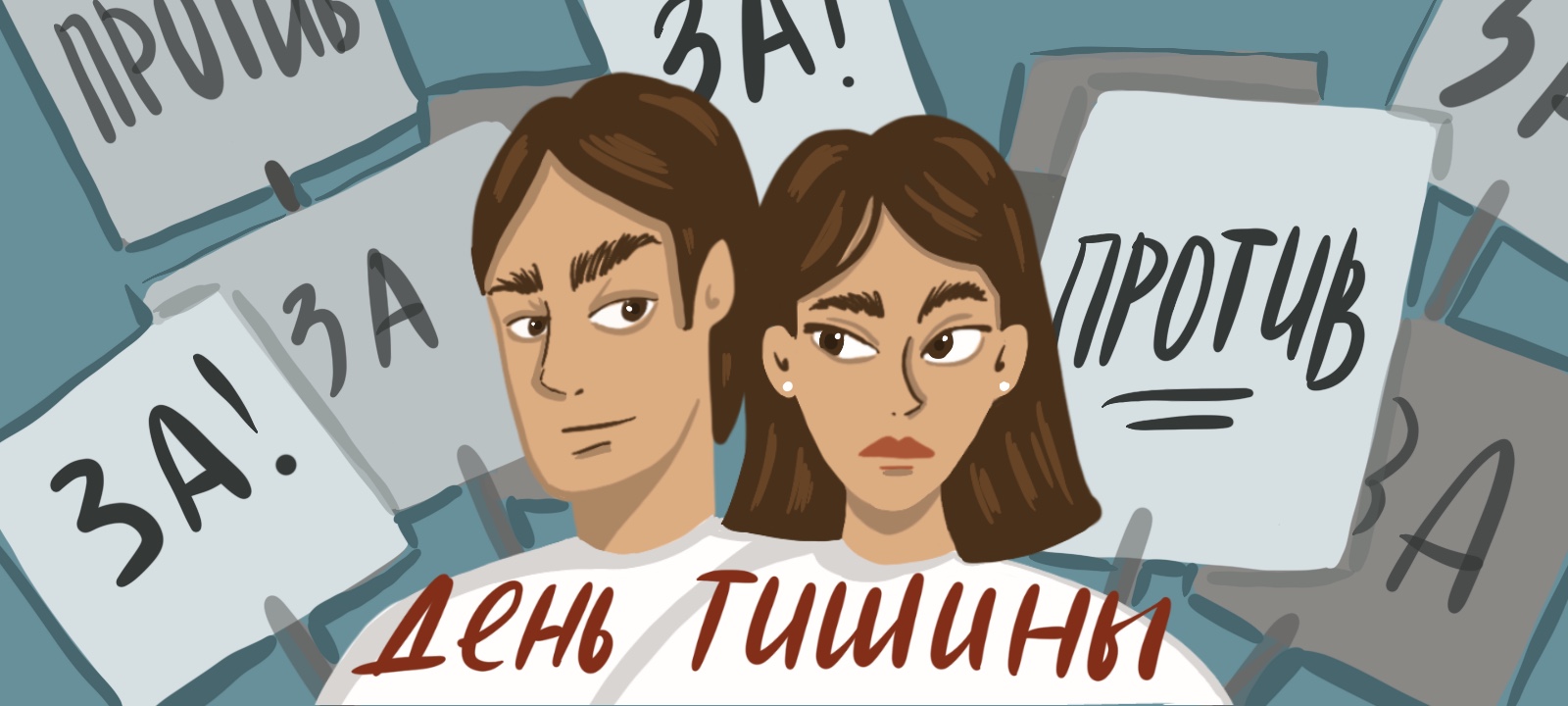
Margarita Zavadskaya became the first expert in the new podcast “День тишины” (Election silence), created by Bedersons projects and Perm magazine Zvezda. This popular-science podcast discusses various political and social topics, and the pilot episode is devoted to the elections under authoritarian regimes. Listen to the podcast and learn why dictators might hate elections, but still adhere to them; why the opposition in authoritarian regimes constantly discusses who of them is a real deal and who is a fake; and how dictators expand their voters base? The podcast is available on all major platforms and can be found here.
